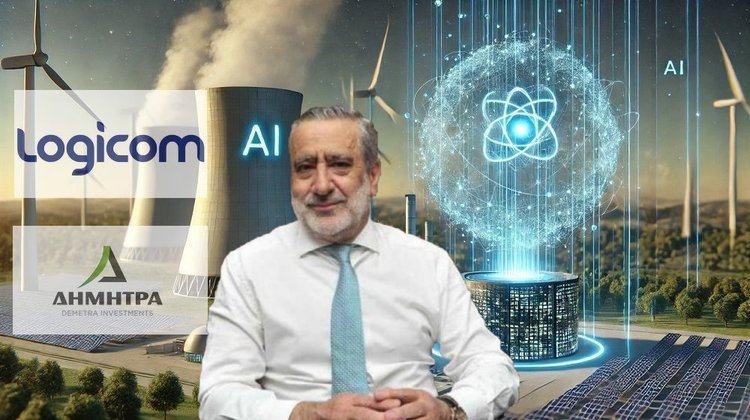Logicom and Demetra explore and assess entry into energy sector with SMR technology
09:58 - 20 February 2025

Logicom and Demetra are exploring the possibility of entering the energy sector through Small Modular Reactor (SMR) technology—also known as 'pocket reactors' due to their size and capabilities.
According to InBusinessNews sources, the two companies are currently conducting preliminary studies on the potential utilisation of SMRs.
It is a next-generation emerging technology for producing green, safe, and more affordable nuclear energy. Its integration into the energy mix of countries is becoming increasingly essential, especially in light of the widely accepted—particularly in recent years due to geopolitical developments—need to adjust Europe's energy strategy and beyond.
Nuclear energy production and SMRs
The sector of next-generation nuclear energy production, infrastructure, and distribution—specifically through SMRs—is gaining increasing traction worldwide. It is growing in momentum amid the ongoing global energy crisis, which has driven energy costs to unprecedented levels across the globe.
And this is because it is emerging not only as the most economically viable option but also as a necessary solution to achieve the Net Zero greenhouse gas emissions target by 2050.
A clear indication of this trend is that an increasing number of EU countries are seriously considering the development of SMRs as part of their decarbonisation strategies. Experts view this new technology as equally efficient and safer compared to traditional reactors. In a way that allows SMRs to serve as an alternative solution and contribute to achieving the goal of phasing out fossil fuels.
The potential and benefits of SMRs
It is worth noting that nuclear energy was a key topic during the hearing of then-nominee and now European Commissioner for Energy, Danish politician Dan Jørgensen, at the European Parliament. He faced a barrage of questions from MEPs on the issue, promising that nuclear energy would be included in the upcoming Clean Energy Investment Plan. He also announced the launch of a specialised study to assess the investment needs of the sector.
At the same time, a detailed study conducted by Aristotle University of Thessaloniki on the impact of incorporating nuclear energy from SMRs into Greece’s electricity generation mix indicated, among other findings, a significant reduction in electricity prices, a drastic decrease in emissions, and lower natural gas consumption—resulting in substantial annual cost savings.
The discussion was recently reignited by Greek Prime Minister Kyriakos Mitsotakis through relevant remarks at an international conference. At the same time, UK Prime Minister Keir Starmer appears determined to encourage new investments in Small Modular Reactors in the United Kingdom. Starmer has even extended an open invitation to technology companies such as Google, Meta, and Amazon to invest in AI data centres in the UK, which could be powered by SMRs.
Global tech giants betting on SMRs
Major global technology providers such as Amazon, Microsoft, Meta, and Google are increasingly investing in nuclear energy from SMRs to fulfil their commitment to reducing carbon emissions. At the same time, they see SMRs as a key solution for expanding their data centres and meeting their growing energy demands.
A clear indication of these growing energy demands is a Goldman Sachs report stating that AI applications are expected to drive a 160% increase in the total electricity consumption of data centres. The report also estimates that a single query on ChatGPT requires roughly ten times more electricity than a Google search.
In this evolving landscape, SMRs emerge as an ideal solution. These advanced small reactors, which rely on a range of different technologies and typically have a capacity of up to 300 megawatts, can operate 24/7 with zero carbon emissions. Their modular nature allows them to be installed near data centres and scaled up to meet growing energy demands.
These factors have led global technology providers in recent years to turn to nuclear energy to meet their power needs. They are actively seeking partnerships or making investments in companies specialising in nuclear energy production from SMRs.

